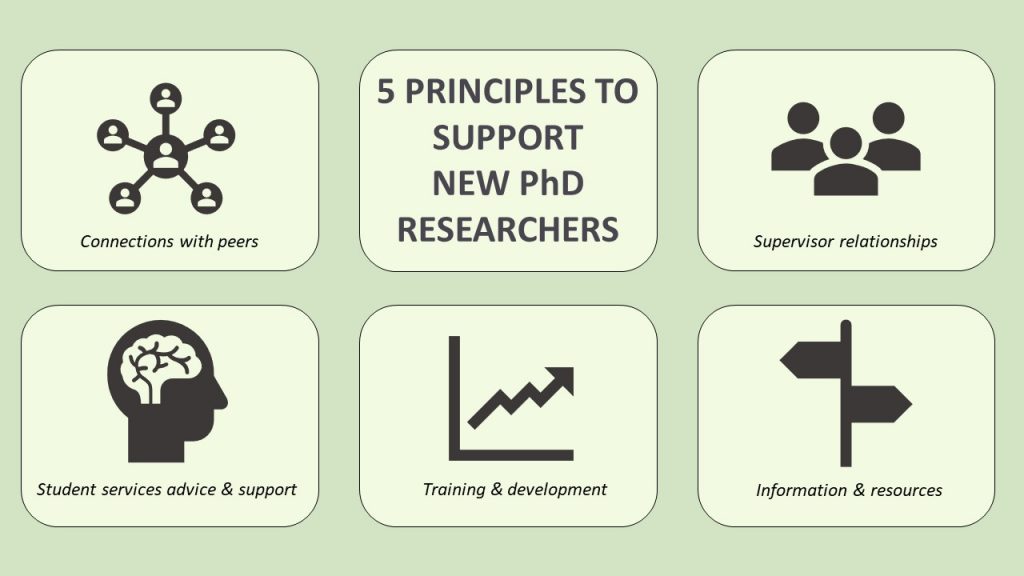A team led by the University of Lincoln have developed co-designed, evidence-based principles for the design of Doctoral inductions to support researchers’ mental health and wellbeing. The team is also establishing a network to support Doctoral leads and is calling for expressions of interest from those who wish to join.
>>The Research
Doctoral education is key to producing scientific advancements and innovations that can make important contributions to economic growth and societal issues. In recent years, however, there is increasing concern in the higher education sector for this community, as evidence indicates that doctoral researchers are at heightened risk of experiencing psychological distress (e.g., Levecque et al., 2017). In addition, the varied innovations, strategies and activities between universities aren’t well curated, meaning the Doctoral training community can struggle to know ‘what works’.
In line with calls in the higher education sector for the development of prevention strategies to promote mental health and wellbeing in doctoral researchers, researchers at University of Lincoln have explored how to best support doctoral researchers in the transition to doctoral study. Funded by the Student Mental Health Research Network (SMaRteN) and led by Dr Trish Jackman, the team worked with 47 doctoral researchers and 13 higher education stakeholders to co-design principles to inform the design of doctoral researcher induction programmes. Combining the results of a systematic review with qualitative data, the team identified five key principles for higher education institutes to integrate into doctoral induction programmes:
5 Principles for Doctoral Inductions

>>Use the research
The team are inviting all Doctoral induction leads to read, consider and use these Good Practice Principles in upcoming cohorts. It may be that you’re already using many of the recommended strategies – which is great – but the team are inviting Doctoral support staff to draw these principles into strategy development, activity planning, and tailor them to the context. The 5 principles are outlined in the image above and below as a downloadable poster, explained further via a webinar, and detailed as a fuller set of principles for practice. A self-assessment tool aligned with the actionable strategies designed has also been developed to enable evaluations of existing provision.
Webinar talk: A brief 15-minute talk about the recommended principles is available to view here
The team are extremely keen to hear how these principles are used in practice, and invite anyone making use of them to get in touch or (even better) join the network….
>>Join the network
These principles alone are only part of the answer; to make real change in supporting the mental health of Doctoral students, we need to draw together a Community of Practice to share experiences. To do this – and help understand how the Principles are supporting practice – the team are setting up a network to share success stories, challenges, pitfalls and ideas. At this point, the team are inviting anyone leading Doctoral support or supporting doctoral researchers to express interest in joining the network.
To register your interest in joining the network, please complete the brief form here.
This project has been funded by the Student Mental Health Research network (SMaRteN). SMaRteN is funded by UK Research and Innovation and their support is gratefully acknowledged (Grant reference: ES/S00324X/1). Any views expressed here are those of the project investigators and do not necessarily represent the views of the SMaRteN network or UKRI.